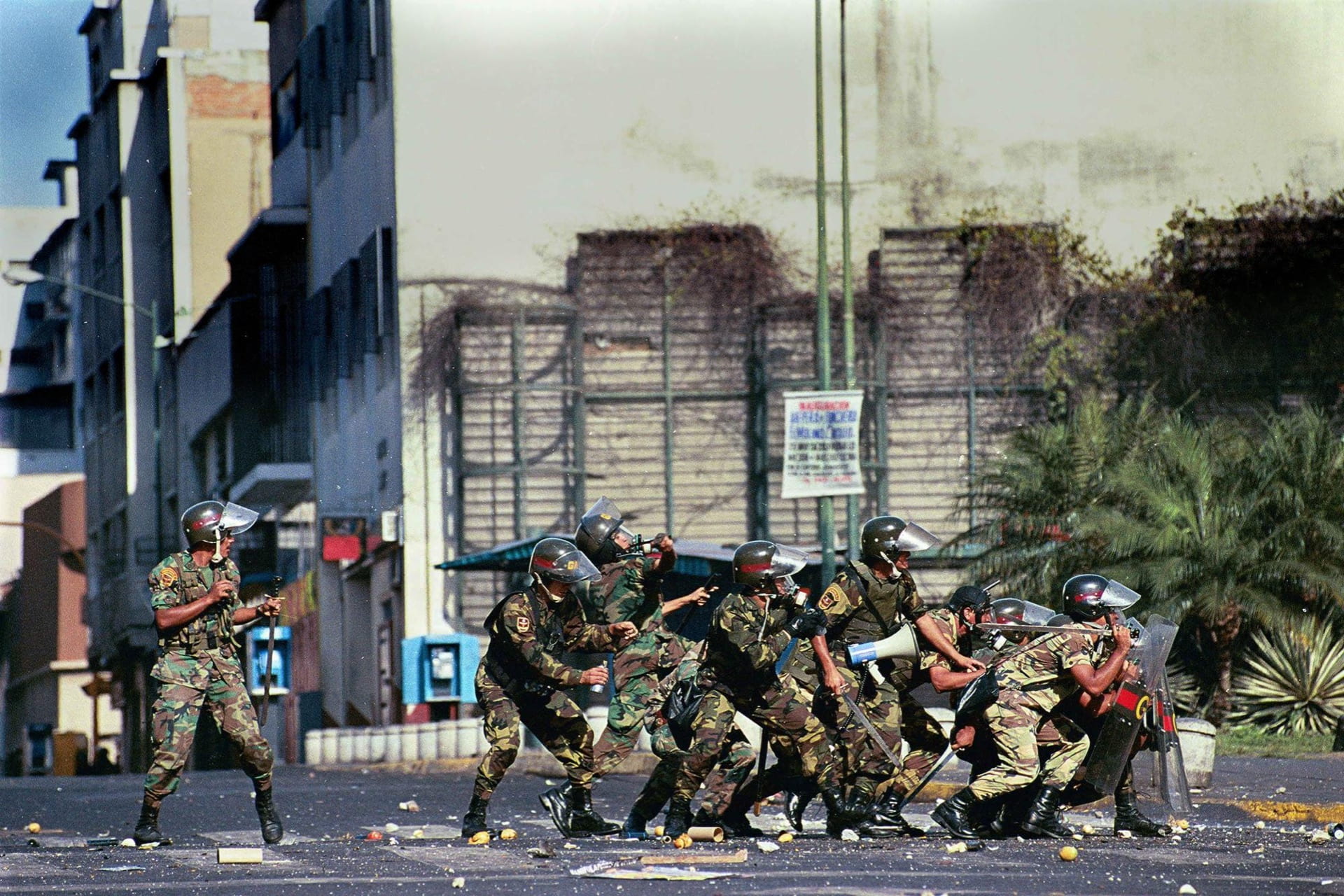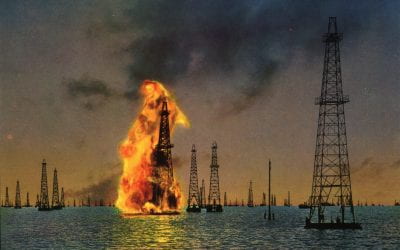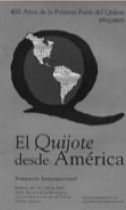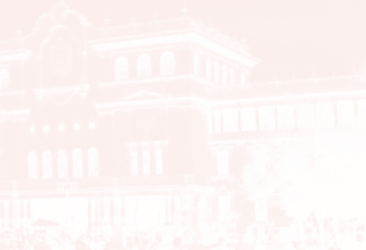U.S. Policy Toward Latin America
A View from the Arab World

Riots in Caracas: Much of the Arab world admires states that are not fully in tune with Washington’s views and policies against terrorism. Photo by Gabriel Osorio.
In the Arab world, recent events in Iraq have reignited a growing interest with the recent history of Latin America and with the past and recent history of U.S. involvement south of its borders. The Arab media constantly report on the events in the region and on U.S. policies towards Latin America. From major newspapers to television stations such as Al-Jazeera, the channel that has revolutionized the news media in the Arab world in the past few years, the Arab media is looking toward Latin America as a mirror and beacon.
Many here in this part of the world are beginning to understand the parallels between our recent histories—Latin America and the Arab world—and are realizing how in different forms and shapes our histories have been intertwined in our not so distant past.
Perhaps a good example of this interest was Al Jazeera’s announcement on December 2004 of its second exclusive interview with a personage the channel described as one of the most popular leaders in the Arab world: Hugo Chávez. The diva of Arab journalism, Faysal Al-Qasim, introduced Chávez as one of the most respected leaders in the Arab world. The “average Arab” admires Chávez, Al-Qasim continued, because of two things: The first was his care for the poor and the downtrodden in his country, the second being his defiance of the only superpower in the world, the United States of America.
Arab sympathies toward Chávez, and, for that matter, other Latin American leaders who have enjoyed ample admiration such as Fidel Castro and Inacio “Lula” da Silva should not surprise anyone. Those with a political discourse that runs counter to Washington’s view of the world are particularly welcome in the Arab world. This is particularly true at a time in which the United States is at its lowest level of popularity due to its recent unilateral invasion of Iraq under the flag of its war against terrorism, its unquestionable support for Israel’s policies in the West Bank and Gaza, and its urgent and unequivocal calls for a democratic change, particularly for regimes that have fallen out of Washington’s favor. Now that Saddam Hussein is gone and Mohamar Qadafi has pledged to collaborate with the West, Arab sentiment against the United States—and in certain way against their own governments—is best articulated by leaders of the Americas.
In his interview with Al-Jazeera, Chávez did not spare a second before he went on to fustigate the United States foreign policy towards Latin America and the Middle East. Echoing a first interview in Caracas, as well as earlier declarations in Tripoli, Libya, he justified the resistance in Iraq against the American army as legitimate. He called the war in Iraq and Afghanistan not a war on terrorism, but “terrorism itself.” Announcing the emergence a collective front throughout Latin America against the unilateralism of the United States, he proceeded to condemn Washington’s neo-liberal economic model. Nowadays, not a single Arab leader dares to say these things on public in the region. Thus, no wonder these statements have such an impact to an audience frustrated with the state of affairs of their own economies and societies. Chávez, Castro, Lula and the emerging Latin American left in their own way evoke for Arabs nostalgia for years gone-by in which Gamal Abdel Nasser, the Egyptian leader who nationalized the Suez canal in 1956, rallied the masses with his calls for Pan-Arabism, self- determination, and calls for a multi-polar world in the mist of the bipolar division of the Cold War.
It is not only that certain Latin American leaders have a welcoming forum in the region. The media has increasingly been making parallels between Latin American and the Middle East events after September 11, 2001. Shortly after the failed coup d’etat against Chávez in April 2002, the dean of Arab newspapers, the Egypt’s Al-Ahram, warned its readers about a possible CIA complicity in the events and of the potential implications for the Middle East. The newspaper argued that U.S. covert operations against regimes that were not fully in line with Washington’s view were here to stay in the post-September 11 world both in Latin America and the Middle East. Therefore, the newspaper warned, the history of both regions are linked, taking lessons from what happened to the democratically elected leaders of Iran, Mohammed Mossadeq in 1953, Guatemalan president Jacobo Arbenz the following year, and “Salvadore Allende” (sic) in Chile in 1973. Al-Ahramprophesized that Washington would extend its hand first to Iraq’s Saddam Hussein, possibly to Iran and Syria, and then to any state not fully in tune with the views and policies of Washington’s fight against terrorism—beginning with Hugo Chávez.
PARALLELS AND INTERTWINED HISTORIES
The growing Central Americanization of the Middle East comes to many as an appropriate term to use here, reflecting parallels in the recent history of the two regions. Take for example United States policy towards the Sandinistas in Nicaragua. Shortly after taking power in 1981, President Reagan and his advisors were convinced that the Sandinista government of Nicaragua had entered into an alliance with the Soviet bloc that was about to facilitate the expansion of communism in the region, or, to use the jargon of those years: “the empire of evil.”
The Reagan administration employed all efforts, short of a direct military invasion, to force a regime change in Nicaragua. The country’s economy was destroyed as an undeclared embargo that closed access to trade and loans from the U.S. and most of the international lending community. The CIA directly and indirectly plunged the country into a civil war, at times using the services or cover-up of the “contras,” an anti-Sandinista militia, many of them mercenaries. Much of Nicaragua’s infrastructure was destroyed with violent acts, some of which the Hague Tribunal condemned in 1985 as open violations of international law. Interesting enough, the first weapons were given to the “contras” in 1983 and 1984 came from the Department of Defense and the CIA after a joint operation called “Tipped Kettle” allowed these two agencies to get hold of weapons captured by Israel from the PLO during the invasion of Lebanon in 1982.
When the funds provided by Congress to sustain the “Contras” started to dry up, with legislators expressing their unwillingness to support additional monetary commitments, the Reagan administration approached its friends in Israel, South Africa, and Saudi Arabia for surrogate funds. Old times, old friendships. The Saudis paid a total of $32 million to finance the militia that was suppose to install a democratic regime in Nicaragua. In 1985, in an effort to complement the funding of those whom President Reagan called the “moral equivalent of our founding fathers,” the U.S. and Israel agreed to sell arms to Iran—country the United States had previously declared a sponsor of terrorism—and diverted the money of the operations to finance the “Contras” in Nicaragua. It was thanks to the investigative report of the Lebanese newspaper Ash-Shiraa that the whole operation began to unravel in November 1986, and the Reagan administration plunged into its most serious scandal, also known as the Iran-Contra affair.
The war in Nicaragua continued unabated throughout the 1980s, partly because it was framed within a propaganda campaign that installed fear amongst the U.S. public, and gave the Sandinistas and the opponents of the war no respite. To that effect, the Reagan administration created the Office of Public Diplomacy for Latin America and the Caribbean that articulated a complex story that members of the Reagan administration assumed as their mantra. In part, this narrative argued that the Sandinista government was a threat to the security of the region and the United States, and had to be removed from power. Moreover, the Sandinistas were acting as members of an international network of terrorist organizations and states consisting of outlawed organizations, such as the Palestinian Liberation Organization (PLO) and states, such as Iran, Syria, and Libya. This network was controlled from Moscow and Havana, and was using Nicaragua as a training camp, and a springboard to the rest of Central America potentially reaching the United States, hence the need for fast and decisive action. Houston, President Reagan once warned America in a television address, was closer to San Salvador than to Washington, so the war had to be fought there before it reached the streets of the United States. None of these accusations ever proved to be true, yet they instilled fear of an international terrorist conspiracy against the United States and its allies. The persistent propaganda allowed the Reagan administration to divide public opinion, giving the administration a degree of flexibility for its controversial policies both in Latin America and in the Middle East.
Twenty years later, many of those functionaries who articulated these policies returned during the first Bush administration and presented a similar policy towards the Middle East framed within the same parameters of a war against terrorism, and the need for democracy. The latest official with ties to the United States policy towards Latin America and now joining the prominent ranks of the Bush administration is the proposed Director of National Intelligence John G. Negroponte, the former Ambassador to Honduras during the height of the Central American conflict (1981-1985). In 2004, Ambassador Negroponte was appointed as the first U.S. ambassador to the post-Saddam Hussein regime. Ambassador Negroponte, probably the next director of National Intelligence in the U.S., has been accused of covering up the Human Rights violations committed by regime of General Gustavo Alvarez Martínez a vital ally of the United States in the region, and for running the embassy from which the CIA campaign against Nicaragua was launched. Not the best credentials for the person who is now in charge of supporting the democratic transition to a post-Saddam Hussein regime in Iraq, concluded one editorialist writing for the influential newspaper Khalij Times, based in Dubai.
Others of the resurrected players from Central America include, among others, the special ambassador to the Middle East Donald Rumsfeld, and the former National Security Advisor Colin Powell. Middle level functionaries have also returned. The former Director of the State Department’s Office of Public Diplomacy for Latin America and the Caribbean from 1983 to 1986, and latter ambassador to Venezuela, Otto Juan Reich, also resurrected since 2000. President Bush appointed him in 2001 through the back door during a Congress recess, certain that Reich nomination was not going to pass the scrutiny of the Senate. When his appointment expired in 2003, Reich was reappointed as special envoy to the Western Hemisphere.
Reich’s latest contribution to America’s foreign policy towards Latin America has been the designing of a transitional strategy for the end of the Fidel Castro era that has tightened the embargo towards Cuba. The new measures have enraged the public opinion in the Arab world where Washington is being accused not only of trying to destroy the country, but of setting the stage for an “invasion and possible annexation of the stubbornly independent socialist island,” as Al Ahramobserved in one recent article. The same newspaper has called these new measures “weapons of mass destruction.”
In all, twenty years after the wars in Central America, the regimes that the United States intervention left are fierce supporters of Washington foreign policy—Honduras and El Salvador even sent briefly a contingent of soldiers to Iraq. However, with standards of living among the lowest in the region and with one of the worst income distribution in the world, many in the Arab world question the overall success of such long and bloody conflict.
Latin America will continue as to be a topic of great interest in the Arab world as the second Bush administration promises more of the same policies of the first, and the Middle East continues to be deprived of leaders willing or able to dare to question Washington’s view of the world. With a situation like this, it is no wonder that those in Latin America articulating policies that run counter to the U.S. will continue to enjoy a great deal of popularity. A great good deal, if we judge from what Al-Jazeera augured for Chávez during his visit to Qatar. According to Al Jazeera, Chávez could easily be elected president in any Arab country with a genuine 90 percent of the vote—“I mean a genuine 90 per cent, not a falsified one,” his interviewer added.
Spring/Summer 2005, Volume IV, Number 2
Federico Vélez is an Assistant Professor of History and International Relations at Zayed University, Abu Dhabi, in the United Arab Emirates. He was a founding member of the Harvard-MIT Colombian Colloquium.
Related Articles
Introduction: Bush Administration Policy
So it is the policy of the United States to seek and support the growth of democratic movements and institutions in every nation and culture, with the ultimate goal of ending tyranny…
International Symposium in Puebla
It is likely that Don Quijote first reached the Western hemisphere—in what was, at the time, lightning speed—as a stowaway. On September 28, 1605, Franciscan commissioners of the…
Adiós 61 Kirkland
For the past eight years, the David Rockefeller Center for Latin American Studies has made its home at 61 Kirkland Street. Countless film screenings, celebrations and roundtable discussions…




